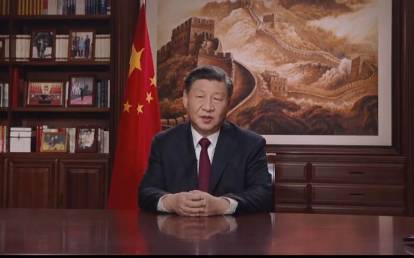Xi Jinping: A Comprehensive Overview
Early Life and Education
Xi Jinping was born on June 15, 1953, in Beijing, China. He is the son of Xi Zhongxun, a prominent revolutionary and former Vice Premier. Growing up during the turbulent periods of the Cultural Revolution, Xi faced significant challenges, including his family being persecuted. He spent his adolescence in a rural village in Shaanxi Province, where he worked in agriculture after being sent down to the countryside. This experience deeply shaped his leadership style and understanding of rural issues.
Xi Jinping attended Tsinghua University, where he studied chemical engineering from 1975 to 1979. He later pursued a degree in Marxist theory, which laid the ideological foundation for his future political career.
Political Career
Xi began his political career in 1979, rising through various local government roles. His early positions included working in the provinces of Hebei, Fujian, and Zhejiang, where he gained valuable administrative experience and insights into China's regional dynamics.
In 2007, Xi was appointed to the Politburo Standing Committee, positioning him prominently in the Party hierarchy. He became Vice President of China in 2008, during which he represented the country on the international stage and significantly strengthened diplomatic relations with various nations.
Rise to Power
Xi Jinping ascended to the presidency of the People’s Republic of China on March 14, 2013. Concurrently, he was elected General Secretary of the Communist Party of China (CPC) and Chairman of the Central Military Commission, consolidating power across the political, military, and governmental spheres.
His leadership is marked by an assertive approach to governance, characterized by a significant anti-corruption campaign aimed at purging the Party of corrupt officials. While this campaign has been framed as a necessary reform, critics argue that it has also served as a means to eliminate political rivals and consolidate Xi's power.
Policies and Ideology
Xi Jinping's administration has introduced several critical policies that outline his vision for China:
- "Xi Jinping Thought on Socialism with Chinese Characteristics for a New Era": This ideology emphasizes the importance of the CPC's leadership, economic modernization, and national rejuvenation. It was formally incorporated into the Party constitution in 2017 and the state constitution in 2018.
- Belt and Road Initiative (BRI): Launched in 2013, this ambitious infrastructure and economic development project aims to connect Asia, Europe, and Africa through trade routes. The BRI has positioned China as a global leader in infrastructure investment and development.
- Environmental Policies: Xi has acknowledged climate change as a critical issue. Under his leadership, China pledged to achieve carbon neutrality by 2060 and peak carbon emissions by 2030, signaling a significant shift towards green energy and sustainability.
- National Security and Foreign Policy: Xi's administration has taken a more assertive stance in foreign affairs, particularly in the South China Sea. His government has emphasized sovereignty and territorial integrity, leading to heightened tensions with neighboring countries and the United States.
Domestic Governance
Under Xi’s leadership, the Chinese government has tightened control over civil society, media, and the internet, leading to increased censorship and a crackdown on dissent. The 2019 protests in Hong Kong highlighted these tensions, demonstrating the challenges Xi's administration faces in balancing control with the aspirations of the Chinese populace.
Legacy and Future
Xi Jinping has fundamentally reshaped the Chinese political landscape, reinforcing the dominance of the Communist Party. His tenure has been marked by significant economic growth, increased international influence, and stringent measures on domestic governance.
As he prepares for a prolonged stay in power following the 20th Party Congress in 2022, Xi's legacy will likely be evaluated through the lens of China's global role, domestic stability, and the impact of his policies on future generations. His vision for China as a global superpower continues to evolve, setting the stage for significant geopolitical developments in the coming years.




No comments yet
Be the first to share your thoughts!